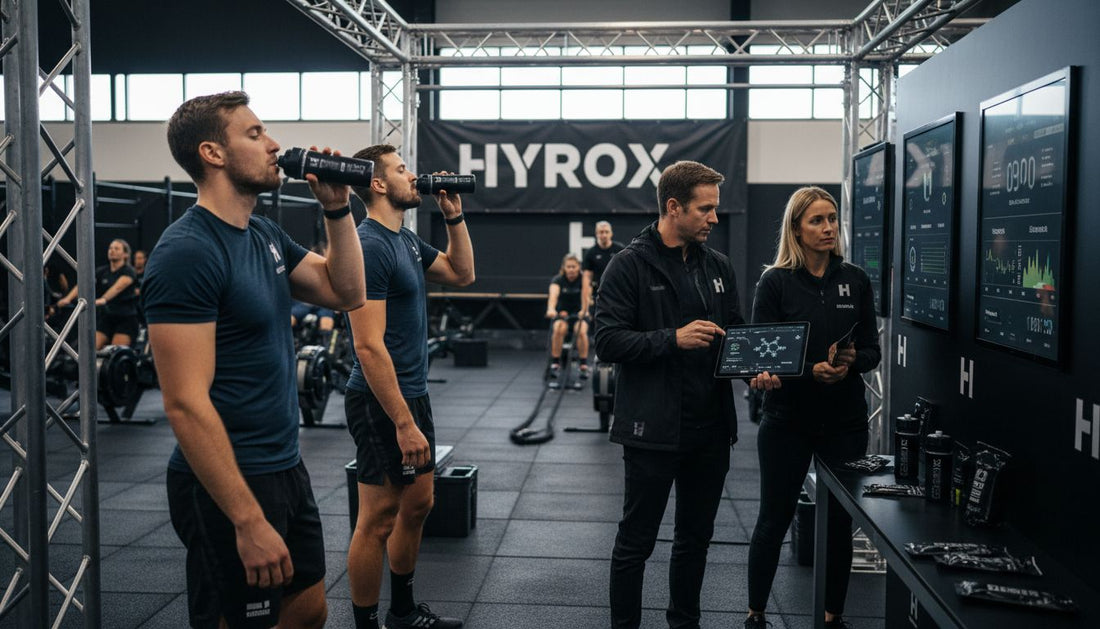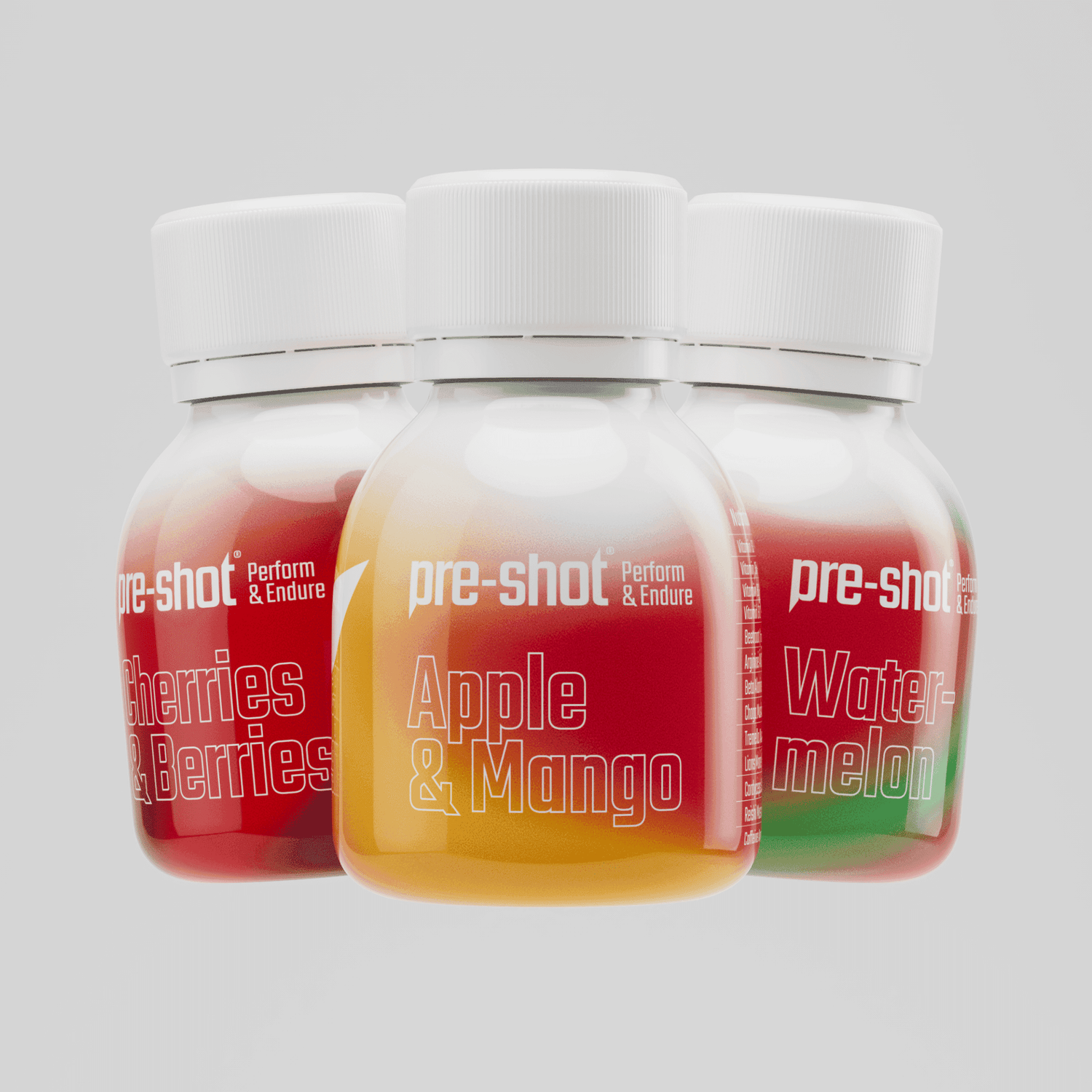
Balanced Electrolytes: Everything You Need to Know
Did you know that a loss of just two percent of your body’s fluids can cause a significant drop in physical performance? Balanced electrolytes are the unsung drivers behind every sprint, squat, and deep breath during exercise. Whether you are pushing through a Hyrox competition or tackling everyday fitness goals, understanding how these charged minerals affect your energy and recovery can help you avoid fatigue, muscle cramps, or setbacks that threaten your progress.
Table of Contents
- What Are Balanced Electrolytes And Why They Matter
- Key Electrolyte Types And Their Functions
- How Electrolyte Imbalances Affect Performance
- Natural Vs Artificial Electrolytes: Key Differences
- Preventing Risks And Common Mistakes For Athletes
Key Takeaways
| Point | Details |
|---|---|
| Electrolytes are Crucial for Performance | Maintaining balanced electrolytes is essential for optimal muscle function, hydration, and recovery, particularly for high-intensity athletes. |
| Imbalances Can Hamper Athletic Success | Electrolyte imbalances can lead to symptoms like muscle cramps, fatigue, and cognitive confusion, negatively impacting performance. |
| Natural vs. Artificial Sources | A balanced approach that combines natural foods with targeted supplements aids in effective electrolyte replenishment without unnecessary additives. |
| Avoid Common Mistakes | Athletes should be aware of their individualized hydration needs and avoid over-relying on supplements, ensuring a strategic hydration strategy. |
What Are Balanced Electrolytes And Why They Matter
Electrolytes are essential minerals dissolved in your body’s fluids that carry an electric charge, playing a crucial role in maintaining optimal physiological functions. Electrolytes are the unsung heroes of bodily performance, influencing everything from muscle contractions to hydration levels.
According to research from the National Library of Medicine, these charged minerals impact critical bodily processes including water balance, blood pH, and nerve and muscle function. For athletes and fitness enthusiasts, understanding electrolyte balance means the difference between peak performance and potential fatigue.
- Key Electrolyte Functions:
- Regulating heart rhythm
- Supporting cellular communication
- Maintaining fluid balance
- Enabling muscle contractions
- Balancing acid-base levels
The magic of electrolytes lies in their dynamic interactions. Your body constantly adjusts electrolyte concentrations to maintain homeostasis, ensuring optimal performance during high-intensity activities like Hyrox competitions. Without proper balance, you might experience decreased performance, muscle cramps, or slower recovery times. Your summer fruits electrolyte hydration can be a strategic tool in maintaining this delicate equilibrium during intense training and competitions.
Key Electrolyte Types And Their Functions
Electrolytes are not a one-size-fits-all mineral group. Sodium, potassium, calcium, magnesium, chloride, phosphate, and bicarbonate each play a unique and critical role in maintaining your body’s complex physiological systems. Think of them like a sophisticated internal orchestra, where each mineral has a specific instrument to play in your performance.
According to research from Kauvery Hospital, these key electrolytes perform essential functions that directly impact athletic performance. Sodium, for instance, controls fluid balance, blood pressure, and nerve and muscle function. Potassium takes center stage in heart and muscle performance, while chloride works behind the scenes maintaining fluid and pH balance.
- Electrolyte Performance Breakdown:
- Sodium: Fluid regulation, nerve signaling
- Potassium: Heart rhythm, muscle contractions
- Calcium: Bone health, muscle activation
- Magnesium: Enzyme support, muscle recovery
- Bicarbonate: Blood pH maintenance
Healthline research highlights that these minerals do more than just exist in your body - they actively help rebuild damaged tissue and maintain critical bodily functions. For high-intensity athletes, understanding these electrolytes means the difference between pushing through a Hyrox competition and hitting an unexpected performance wall.
How Electrolyte Imbalances Affect Performance
For high-intensity athletes, electrolyte imbalances can be a silent performance killer that dramatically impacts your training and competition outcomes. These microscopic mineral disruptions can transform a potential personal best into an unexpected struggle, turning your athletic ambitions into a battle against your own body’s chemistry.
According to research from Wikipedia, electrolyte imbalances can trigger serious physiological disturbances, including disruptions in heart function, neurological performance, fluid balance, and oxygen delivery. Severe imbalances might manifest as arrhythmias, muscle weakness, and even cognitive confusion - essentially creating a perfect storm of performance limitations.
- Performance Red Flags of Electrolyte Imbalance:
- Sudden muscle cramps
- Unexpected fatigue
- Reduced muscle strength
- Decreased mental clarity
- Irregular heart rhythms
Women & Home research highlights that low electrolyte levels can produce symptoms like persistent fatigue, nausea, headaches, and muscle cramps. For Hyrox athletes and fitness enthusiasts, these symptoms aren’t just inconvenient - they’re performance killers that can derail months of dedicated training. Proactively managing your pre-shot science becomes crucial in maintaining your competitive edge and preventing these performance-crushing imbalances.
Natural Vs Artificial Electrolytes: Key Differences
Natural electrolytes and artificial electrolyte supplements are not created equal, each offering unique advantages for athletes seeking optimal hydration and performance. Understanding their differences can help you make more informed choices about how you replenish your body’s mineral stores during intense training and competition.
Healthline research reveals that natural electrolytes come directly from whole foods like fruits, vegetables, dairy products, and nuts. These sources provide not just minerals, but additional nutrients and fiber that support overall bodily function. Artificial electrolyte supplements, in contrast, are precisely formulated to rapidly replace minerals lost during high-intensity activities.
- Natural Electrolyte Sources:
- Bananas (potassium)
- Spinach (magnesium)
- Dairy products (calcium)
- Nuts and seeds (various minerals)
- Coconut water
According to Women & Home, while artificial supplements offer convenient rapid replenishment, experts recommend treating them as a complement to—not a replacement for—a balanced diet. This is particularly crucial for Hyrox athletes who require sustained, strategic nutrition. The key is finding the right balance between natural sources and targeted supplementation to maintain peak performance without unnecessary artificial additives.

Here’s a comparison of natural and artificial electrolyte sources for athletes:
| Feature | Natural Electrolytes | Artificial Supplements |
|---|---|---|
| Source | Whole foods (fruits, veg, dairy, nuts) |
Manufactured powders tablets, sports drinks |
| Additional Nutrients | Fibre, vitamins, antioxidants | None or minimal |
| Absorption Rate | Gradual | Rapid |
| Convenience | Requires meal prep | Easy, portable |
| Role in Diet | Foundation | Complementary support |
| Potential Drawbacks | May not meet rapid needs | Risk of overuse artificial ingredients |
Preventing Risks And Common Mistakes For Athletes
Navigating electrolyte management is like walking a tightrope for serious athletes. One misstep can send your performance plummeting, turning a potential breakthrough into a frustrating setback. Understanding the nuanced risks and common pitfalls is your first line of defence against potential performance-crushing mistakes.
Women & Home research highlights the critical importance of being proactive about electrolyte replenishment, especially during intense training and competitions. The most common athlete mistakes include over-relying on supplements, neglecting whole food sources, and failing to understand individual sweat rates and mineral loss patterns.
- Top Athlete Electrolyte Mistakes:
- Excessive supplement consumption
- Ignoring individual hydration needs
- Replacing meals with electrolyte drinks
- Inconsistent hydration strategies
- Overlooking personal sweat composition
Healthline research emphasizes that while endurance athletes in extreme conditions might require targeted electrolyte replacement, most athletes don’t need extensive sodium supplementation. Your body’s natural mechanisms are remarkably adaptive. The key is understanding your unique physiological needs and creating a balanced, personalized hydration strategy that supports your specific training intensity and environmental conditions.
Unlock Your Peak Performance with Balanced Electrolytes
Struggling with unexpected fatigue, muscle cramps or sluggish recovery during your high-intensity training sessions? The article highlights how crucial maintaining balanced electrolytes truly is for athletes like you aiming to push past performance barriers. With key minerals such as sodium, potassium and magnesium playing vital roles in hydration and muscle function, ignoring proper electrolyte replenishment could be holding you back from reaching your true potential.

Take control of your competitive edge today by exploring our carefully crafted, natural ingredient electrolyte supplements designed specifically for athletes tackling demanding sports. Combining the power of nature and precise formulation helps you avoid common hydration pitfalls and maximise muscle support. Don’t wait until imbalances slow you down, visit Use Interval now and fuel your ambition with smart electrolyte balance. Discover expert-backed solutions to complement your training at Pre-Shot Science and elevate your resilience for every challenge ahead.
Frequently Asked Questions
What are electrolytes and why are they important?
Electrolytes are essential minerals dissolved in your body’s fluids that carry an electric charge. They play a crucial role in maintaining physiological functions such as muscle contractions, hydration levels, heart rhythm, and cellular communication.
How do electrolyte imbalances affect athletic performance?
Electrolyte imbalances can lead to serious physiological disturbances, including muscle cramps, unexpected fatigue, reduced muscle strength, and irregular heart rhythms, all of which can significantly hinder athletic performance.
What are the key types of electrolytes and their functions?
The main electrolytes include sodium, potassium, calcium, magnesium, chloride, phosphate, and bicarbonate. Each plays specific roles such as regulating fluid balance, supporting muscle contractions, and maintaining bone health, all critical for athletic performance.
What is the difference between natural and artificial electrolytes?
Natural electrolytes come from whole food sources like fruits, vegetables, and dairy, providing additional nutrients such as fiber. Artificial electrolytes are often found in supplements and sports drinks, offering rapid mineral replacement but lacking the nutritional benefits of whole foods.

